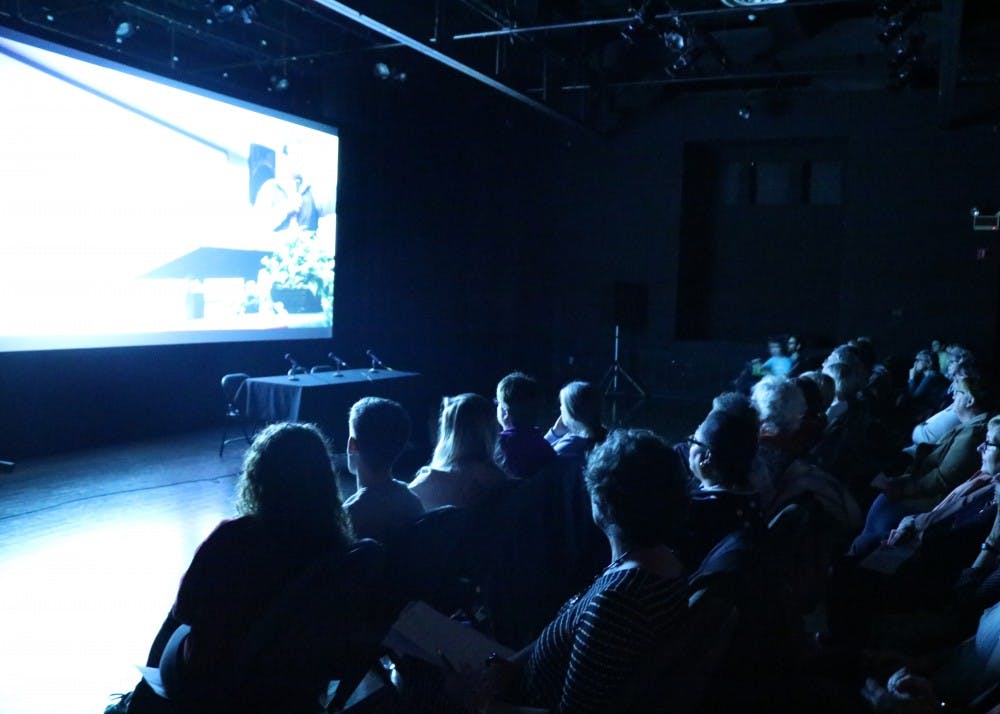Mississippi has one abortion service provider left. Though Indiana has six, the two states may have similar futures.
On Sunday afternoon, the Monroe County Organization for Women and the Unitarian Universalist Church of Bloomington’s reproductive justice task force came together to screen the documentary "Jackson."
Following the screening, a panel of experts discussed parallels between Mississippi and Indiana and the state of reproductive rights in Indiana.
The proceeds from the screening will be donated to Common Cause Indiana, an organization working to fight gerrymandering, the politicized redistricting of localities. Over $3,500 was raised for the organization.
“We selected Common Cause Indiana as the recipient of the proceeds from this screening of Jackson because no social justice issue — including reproductive justice — can be remedied as long as the political and voting districts are manipulated,” Cathi Crabtree, Monroe County Reproductive Justice Committee Coach, said. The audience erupted in affirmation.
As it's portrayed in "Jackson," Mississippi’s last abortion clinic looks like a dollhouse. Outside its pink walls, parents have put the words “you’re a murderer” into their children’s mouths, and there is footage of them screaming those words at the women hurrying in.
“In the end, there will be judgement,” they yelled on screen.
“No, Jesus doesn’t love you for this,” they sang in the film.
"Jackson" follows the experience of April Jackson as she determines what to do about her unborn fifth child. Despite women like Jackson drinking Clorox and water at age 16 to avoid it, Mississippi has the highest teen pregnancy rates in the nation.
Following the screening, Carol Sanger, a Columbia Law School professor who teaches courses focusing on reproductive rights, spoke about the shame paradigm of abortion.
“Shame is connected to sex, secrecy and sneaking around,” she said.
“What struck me the most I think is that Indiana is right there with Alabama,” Sen. Jean Breaux, D-Indianapolis said. “According to many of the indices that represent Indiana, we are right there with Alabama.”
Breaux also said Indiana is currently trying to restrict judicial bypass. Judicial bypass refers to the ability of a girl under the age of 18 to obtain an abortion without involving her parents.
“I think a lot of girls and women don’t think the mistake is having the abortion, they think the mistake was having sex when their parents didn’t think they were the kind of girl who had sex,” Sanger said.
The discussion soon turned to Targeted Regulation of Abortion Providers (TRAP) laws.
“There are laws directed toward the patients,” Sanger said. “That’s the mandatory ultrasound. Would you like to have a look at your baby? Then there are laws directed toward the facilities. That’s your hallways have to be this wide. The third is physicians. Physicians must read this script to women when they do the ultrasound.”
Sanger said the law endorses this shame by creating things like the mandatory waiting period between an initial abortion consultation and the actual procedure.
According to Indiana House Enrolled Act 1337, as of July 2016 if an abortion is performed or a miscarriage is had past 20 weeks in Indiana, a funeral service must be conducted for the fetus.
The service legally has to be offered to fetuses aborted or miscarried before 20 weeks as well, explained Josh Vollmer, a second year medical student at IU who shadowed Planned Parenthood abortion providers this past summer.
“I received a letter from a young lady who had a miscarriage, and she was required as a result of her miscarriage to bury her fetus,” Breaux said. “We’re hurting people, and we’re hurting their lives, and that’s not what we should be about doing in any legislature.”
Indiana has more clinics offering abortion services than Mississippi does, but not by much.
As "Jackson" drew to a close, pressure by the Mississippi legislature increased to try and shut down the clinic. They ensured that the clinic could not obtain the certification to keep its doors open. This is a textbook example of TRAP legislation.
As of March 2016, there were 288 TRAP laws nationwide.
“Somebody once said life is not fair, but law should be,” Dr. Willie Parker, the primary doctor at the clinic featured in "Jackson," said.




